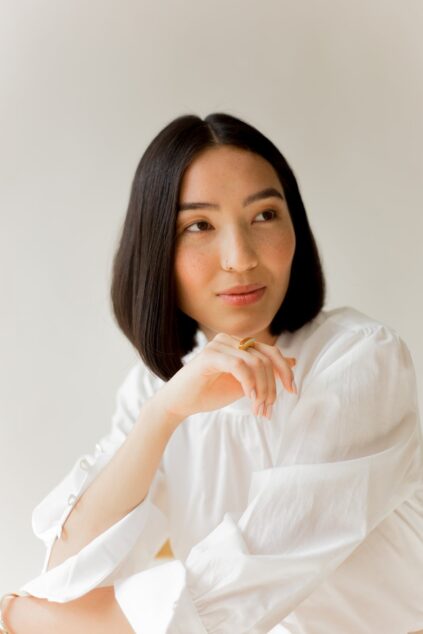
How To Be Friends With Yourself
Becoming My Own Best Friend
There are three things in this life that I am sure I could not live without: Twitter, ASMR videos, and my friends.
At parties, I often find myself gushing about my friends the way married people talk about their spouses or the way pet owners talk about their animal babies. The running joke I have with myself is that the reason I’m so big on friendship is because I was undateable in high school, and my friends were all I had. While that’s not entirely true (I wasn’t undateable, just underrated), I am thankful that my lack of dating experiences in my adolescence helped me learn the value of friendships at such a young age. Now that I’m in my early 20s, I realize that navigating friendships can be just as difficult as navigating a romantic relationship.
The Flux of Friendships
After I graduated from college, I found myself having to navigate changes in friendships more than ever before. In the span of a year, two of my best friends had moved to the other side of the country, which left me feeling utterly alone in ways I’d never experienced.
My friendships have always served as a sort of cornerstone to lean upon. If a dumb boy had broken my heart, or if I’d lost a job, or if I was just feeling lost in general, I’d always comfort myself by thinking, at least I’ll always have my friends.
“As much as I’d like to believe that friendship is this unshakable, unconditional, unchanging thing that lasts forever, this, unfortunately, is not the case.”
There is certainly a lot of truth to this—my friendships haven’t ceased simply because my friends moved away. I also still have a ton of friends who live in the area, which I’m incredibly thankful for. However, when my two best friends moved to different states, I gained this new awareness that friendships, like life in general, are continually in flux.
As much as I’d like to believe that friendship is this unshakable, unconditional, unchanging thing that lasts forever, this, unfortunately, is not the case. Friends change. Dynamics between friends change. Friends get married. Friends move away. Friendships fizzle out. And sometimes, friendships just end.
Cultivating Friendship—With Yourself
This new awareness about friendships has led me to understand the importance of cultivating a friendship with yourself. I know it sounds a bit bleak, this idea that you can’t truly depend on anyone else but yourself, but fostering friendship with yourself doesn’t have to come from a place of pessimism or fear of abandonment. Rather, it should come from a place of celebrating autonomy and cultivating self-advocacy.
It feels strange to suggest that a person can be “friends with themselves.” The image that immediately comes to mind is of a person sitting alone in a coffee shop with a single cup of joe and a Moleskin notebook. While I, personally, am a huge fan of the solo coffee date, I recognize how such imagery or even the wording “be friends with yourself” can sound a bit unappealing to those on the more extroverted end of the spectrum.
“Being friends with yourself is about showing up for yourself even when others do not or cannot show up for you.”
For me, being friends with yourself has less to do with spending time alone, and more to do with cultivating a safe space for yourself, within yourself—a process that, by definition, looks different for everybody. Being friends with yourself is all about finding ways to meet your own needs in a way that works best for you. It’s about showing up for yourself even when others do not or cannot show up for you.
Big picture, cultivating a friendship with myself has had a lot to do with trusting myself and following my own instincts. Sometimes that means saying no, even when everyone else wants me to say yes. It means getting familiar with the small voice inside my head and making decisions based on what’s best for me.
Though in the past I have leaned upon friends, family, and romantic partners for direction in life, as I’m learning to be a better friend to myself, I’ve found ways to become my own compass. This doesn’t mean that I no longer seek out advice or wisdom from the people I care about—that would be a pretty lonely and unwise way to go about life! Instead, I am learning how to let myself have the final say in my life, recognizing that at the end of the day, I have the power to dictate my own path.
On a smaller scale, being friends with myself has looked a lot like doing the little things: making my bed every morning; washing my car before I go out of town; Postmating spicy ramen when I’m sick; buying myself a vegan chocolate chip cookie when I’m having a hard day. It’s saying, “I don’t want to talk about that right now,” or “Hey, can we talk about this right now?” It’s wearing my favorite shoes, even if they’re kind of ridiculous-looking. And it’s staying in child’s pose during yoga as long as I need (which, for me, is a very long time.)
“I’m learning that I can give the same nurturing energy to myself that I seek from others.”
Many of these things are gestures that, in the past, I might have yearned to be made by a partner or a close friend. And while I’ve learned how to be honest with friends and romantic interests about the ways I need to be nurtured, I’m also learning that I can give the same nurturing energy to myself that I seek from others.
The Permission to Get Started
If you’ve had a close friend move away recently, are going through a friend break-up, or are simply feeling a lack of genuine friendships in your life, I encourage you to think about ways you can be a better friend to yourself. Ask yourself: what do I need right now? How can I provide that for myself? What are little ways I can be kind to myself today? What’s something I usually ask of others that I can do for myself? The process may feel a bit lonely at the start, but if the effort comes from a place of exercising autonomy, rather than a place of pessimism, it becomes a very joyful and fulfilling process.
Of course, being a good friend to yourself will look different for each individual. But that’s the beauty of it—you get to decide how you want to treat yourself. And in doing so, we inevitably teach others how they should treat us, too.
What are some ways you practice being a good friend to yourself? Let us know in the comments below! 🧡
RELATED READING
Celeste M. Scott is the Social Media Coordinator at The Good Trade. She is a writer and photographer who is passionate about film and Internet culture. She can often be found sifting through the racks at her local Savers. You can find her work on her website and Instagram.

